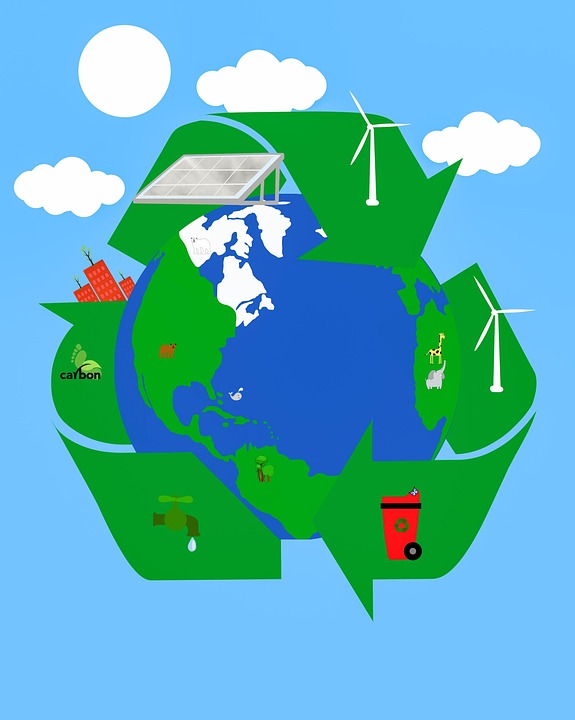In a world grappling with unprecedented environmental challenges, from climate change to biodiversity loss, the need for a deep understanding of ecological systems has never been more crucial. Ecological education, which bridges the gap between knowledge and awareness, plays a vital role in inspiring individuals and communities to foster a connection with the natural world. By equipping people with the tools to understand their environment, ecological education can catalyze meaningful change, promoting sustainable practices and environmental stewardship.
Understanding Ecological Education
Ecological education encompasses a broad range of teaching and learning experiences that focus on the interrelationships between living organisms, their environments, and human activity. This approach emphasizes the importance of understanding ecological principles—such as ecosystems, biodiversity, and the impact of human actions on the natural world. It encourages learners to think critically about their role in the environment and fosters a sense of responsibility towards maintaining ecological balance.
From school curricula that incorporate environmental science to community workshops on sustainable gardening, ecological education can take many forms. However, its ultimate goal remains the same: to instill a sense of connection and appreciation for nature that compels individuals to take action.
The Power of Connection
One of the most significant impacts of ecological education is its ability to foster a connection between individuals and the environment. When people understand how ecosystems function and recognize their personal relationships with these systems, they are more likely to develop an emotional bond with nature. This connection can transform attitudes and behaviors, prompting individuals to engage in practices that support environmental health.
For example, students who participate in hands-on ecological projects—such as planting trees, creating wildlife habitats, or restoring local ecosystems—often form lasting ties to the land. These experiences not only enhance their understanding of ecological principles but also cultivate a sense of ownership and responsibility. This connection can lead to lifelong commitments to sustainability and conservation, as individuals become advocates for the environment in their communities.
Inspiring Change Through Knowledge
Ecological education not only nurtures connections but also disseminates crucial knowledge that can drive meaningful change. As awareness of environmental issues increases, so does the demand for informed citizens who can advocate for policies, practices, and lifestyle changes that promote ecological well-being.
For instance, educational programs that emphasize the impact of plastic pollution can empower individuals to reduce their plastic usage, adopt sustainable alternatives, and participate in local clean-up efforts. By understanding the direct effects of their choices on the environment, students and community members become empowered to enact change—not only personally but also at communal and systemic levels.
Engaging Diverse Audiences
To maximize impact, ecological education must be inclusive, reaching diverse audiences across age groups, cultures, and socio-economic backgrounds. Tailoring educational programs to meet the specific needs and interests of different communities can foster greater engagement and commitment.
Schools can incorporate ecological education into interdisciplinary studies, connecting environmental topics with subjects like mathematics, history, and art. Community organizations can develop programs that celebrate local ecosystems and cultural heritage while addressing environmental issues. Through local outreach, ecological education can embrace the unique perspectives of various communities, ensuring that all voices are heard and valued in the dialogue about sustainability.
Beyond Education: Collaborative Action
Fostering a connection through ecological education goes beyond the classroom or workshop; it extends into collaborative action. Community-based initiatives, such as tree planting, habitat restoration, and conservation projects, can unite individuals inspired by their educational experiences. These activities foster a sense of community and shared purpose, illustrating the collective power of individuals working together to address environmental challenges.
Collaborative efforts can amplify the impact of ecological education, as they cultivate relationships not only between individuals and the environment but also among community members. This sense of camaraderie often leads to lasting support networks, where individuals continue to encourage and empower one another in their commitment to sustainability.
Conclusion
Fostering a connection through ecological education is an essential strategy for inspiring change in the face of environmental crises. By cultivating a deeper understanding of ecological systems and promoting a sense of responsibility toward the natural world, educational initiatives can empower individuals and communities to take action.
As we strive for a sustainable future, it is imperative to recognize the transformative power of ecological education. By fostering connections, inspiring informed action, and engaging diverse audiences, we can create a more environmentally conscious society equipped to tackle our planet’s challenges head-on. Through collective effort and commitment, we can ensure that future generations inherit a thriving, healthy planet.

Leave a Reply